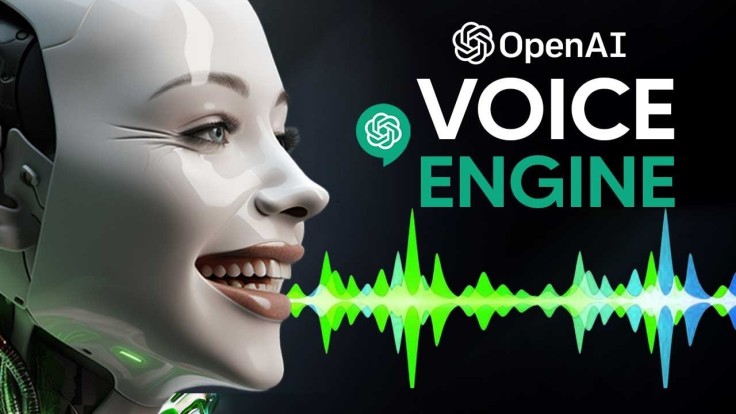AI is slowly gaining traction in digitally replicating voices for people to regain their speaking abilities even after suffering an illness or an accident.
Associated Press reported last week the story of Alexis "Lexi" Bogan, a choir singer who lost her voice last year after a tumor removal surgery impaired her ability to speak.

However, that changed earlier this April after Bogan could properly communicate again with her family and friends thanks to an AI replica of her voice.
The replica, which was stored on her phone, can pronounce short messages Bogan typed into the specially-made app for the AI.
The synthesized voice was modeled from a 15-second video of her teenage voice, which was later recreated via OpenAI's Voice Engine.
Bogan was only one of the first patients to have partnered with Rhode Island's Lifespan Hospital in its research efforts to open a path for AI use in the medical field.
Earlier this month, the technology made headlines after it brought back Randy Travis's singing voice after the country singer suffered a stroke in 2013.
Travis, in partnership with his old producer, later released a new song, "Where That Came From," using the AI voice replica.
Medical Workers Taps into AI Technology to Solve Modern Healthcare Problems
The introduction of AI to help patients regain their voice is only part of a growing effort to bring AI technology into the medical field.
From administrative duties to assistance in medicinal procedures, more and more healthcare practitioners are being reported as favoring the use of technology within their field.
It is worth noting, however, that potential applications of AI were posed as an assistant rather than to automate a whole procedure without human intervention.
Several tests and experiments have already reported the current AI's unsuitability to provide medical advice and diagnose diseases.
As of writing, lawmakers are currently moving to push more legislation to handle AI's growth in the medical industry while proper regulation laws are yet to be made.
AI Voice Replicators Remain a Concern on Information Democracy
The growing application of AI voice replicators is particularly highlighted during previous discussions as potential threats from the technology continue to emerge.
It can be remembered that a similar voice replicator was used to copy the voice of US President Joe Biden to tell New Hampshire voters to pick him in the state's first Democratic primary last February.
With no proper boundaries yet on the use and application of synthetic voices, AI experts and lawmakers are scrambling to protect all vulnerable sectors from the impact of AI on their lives.









